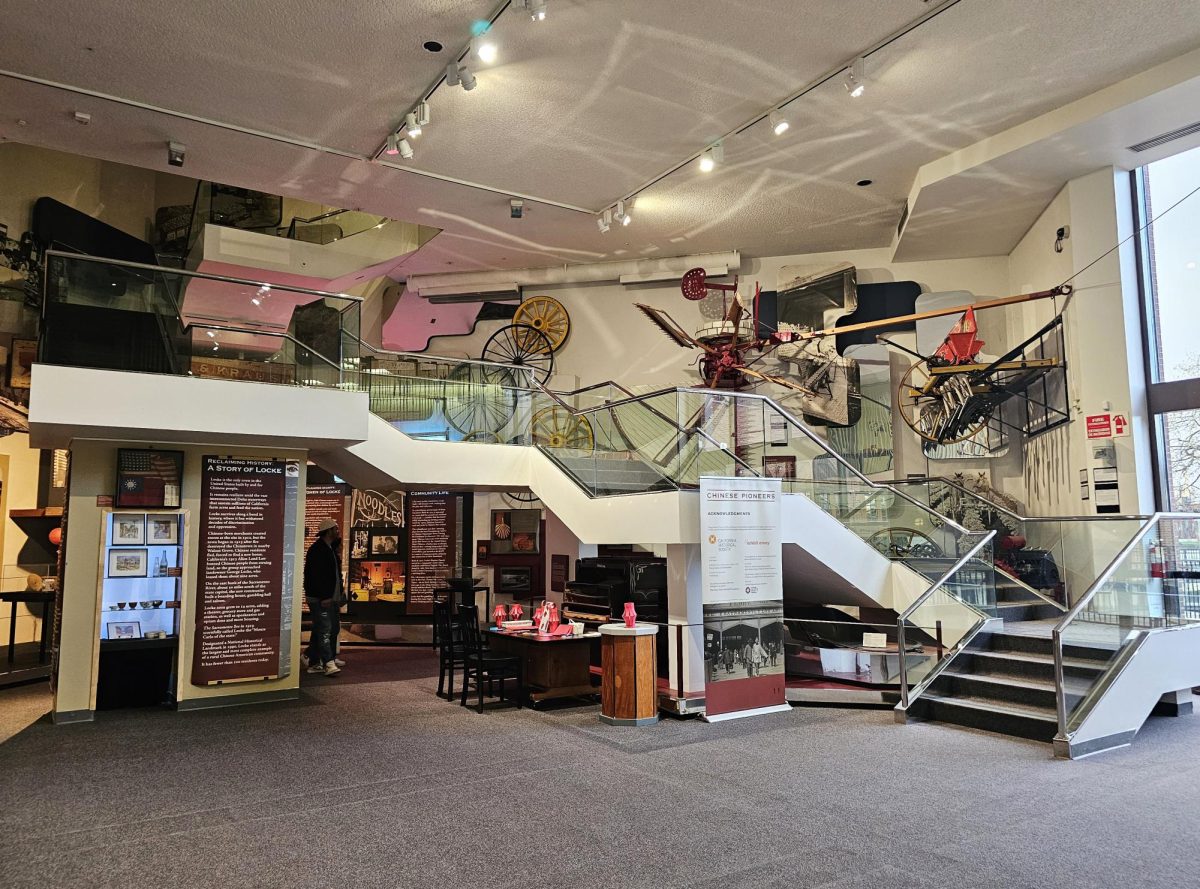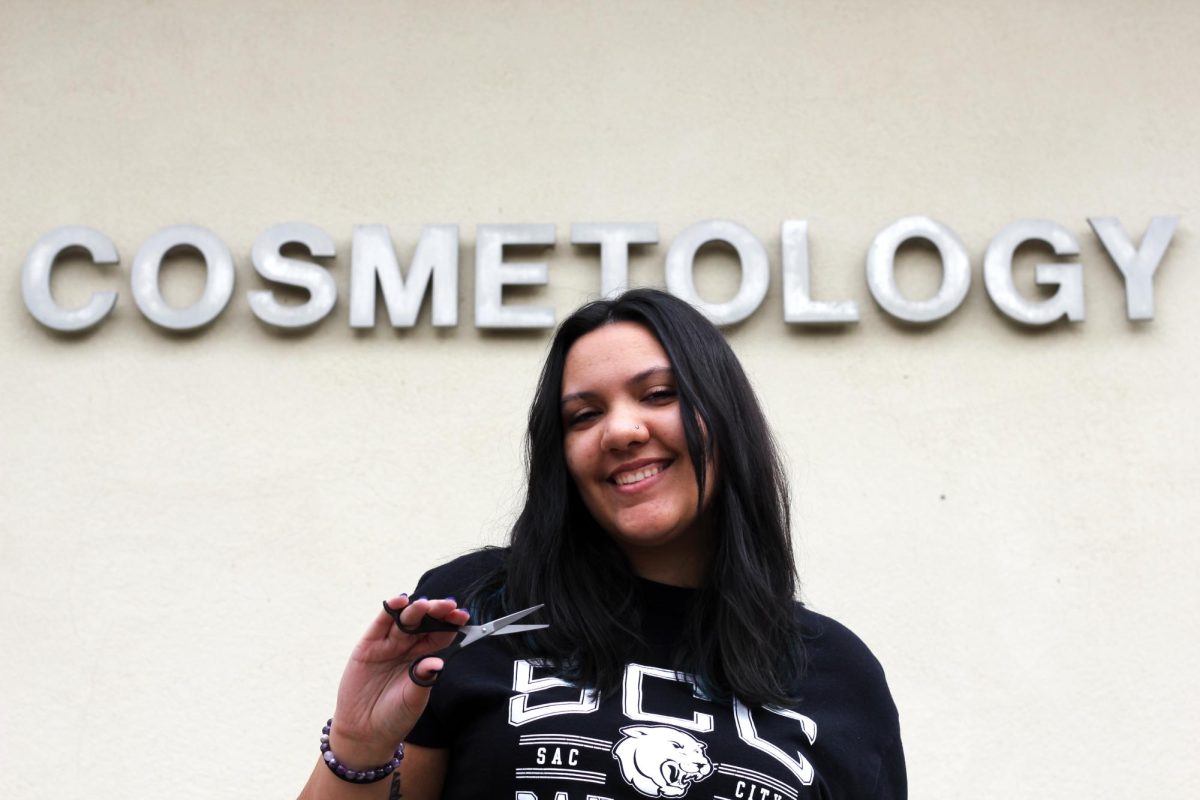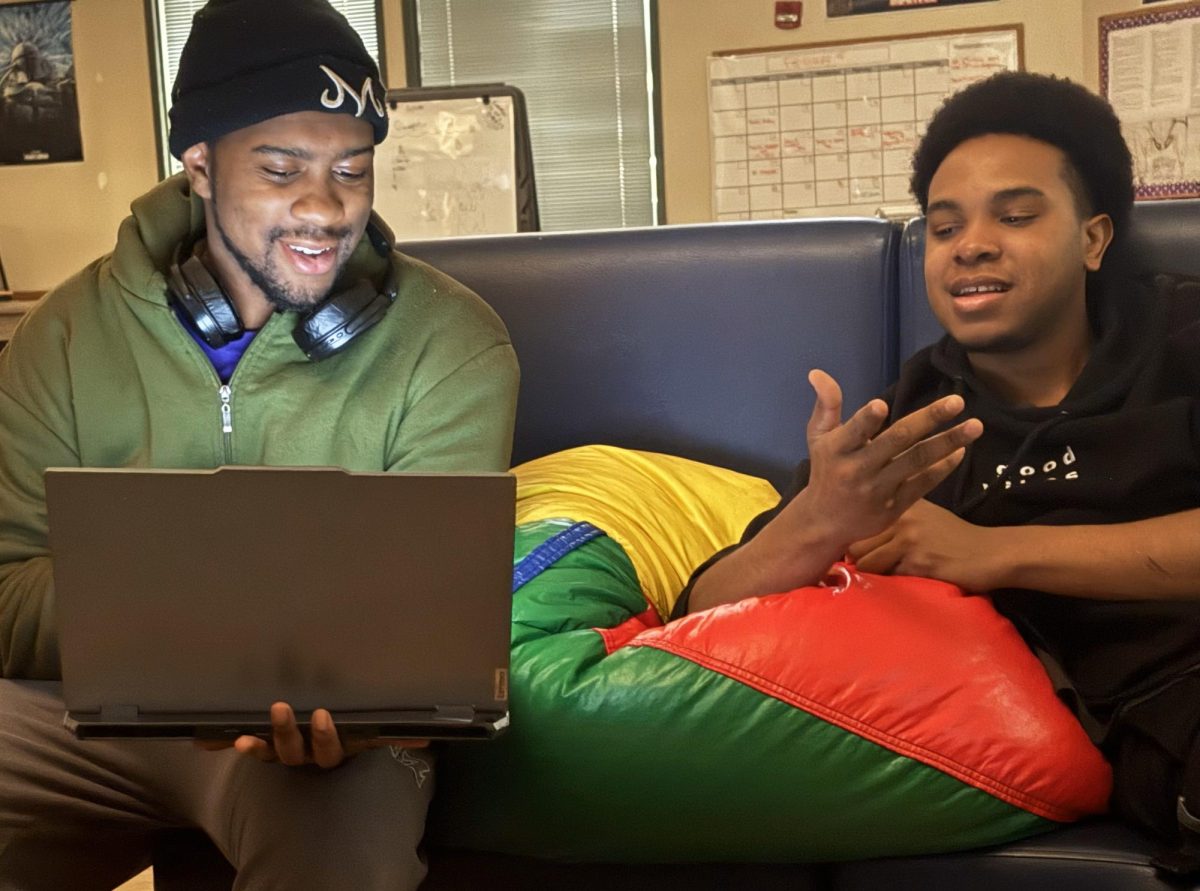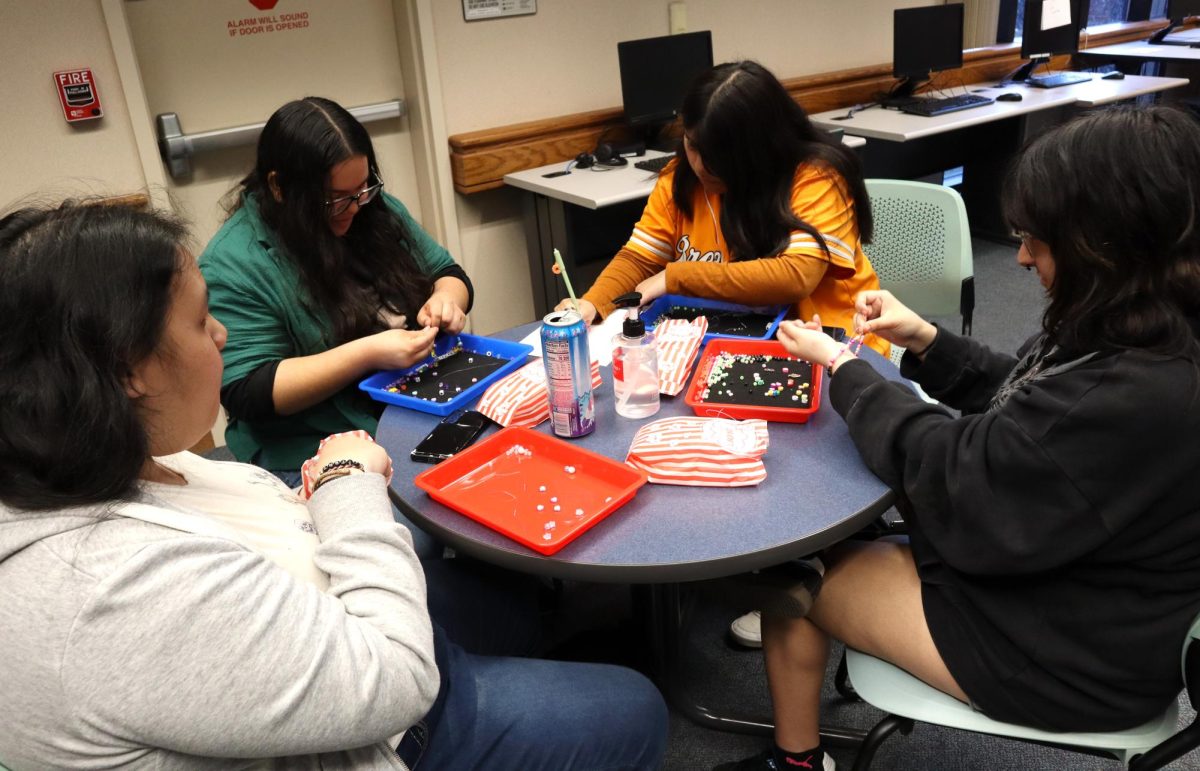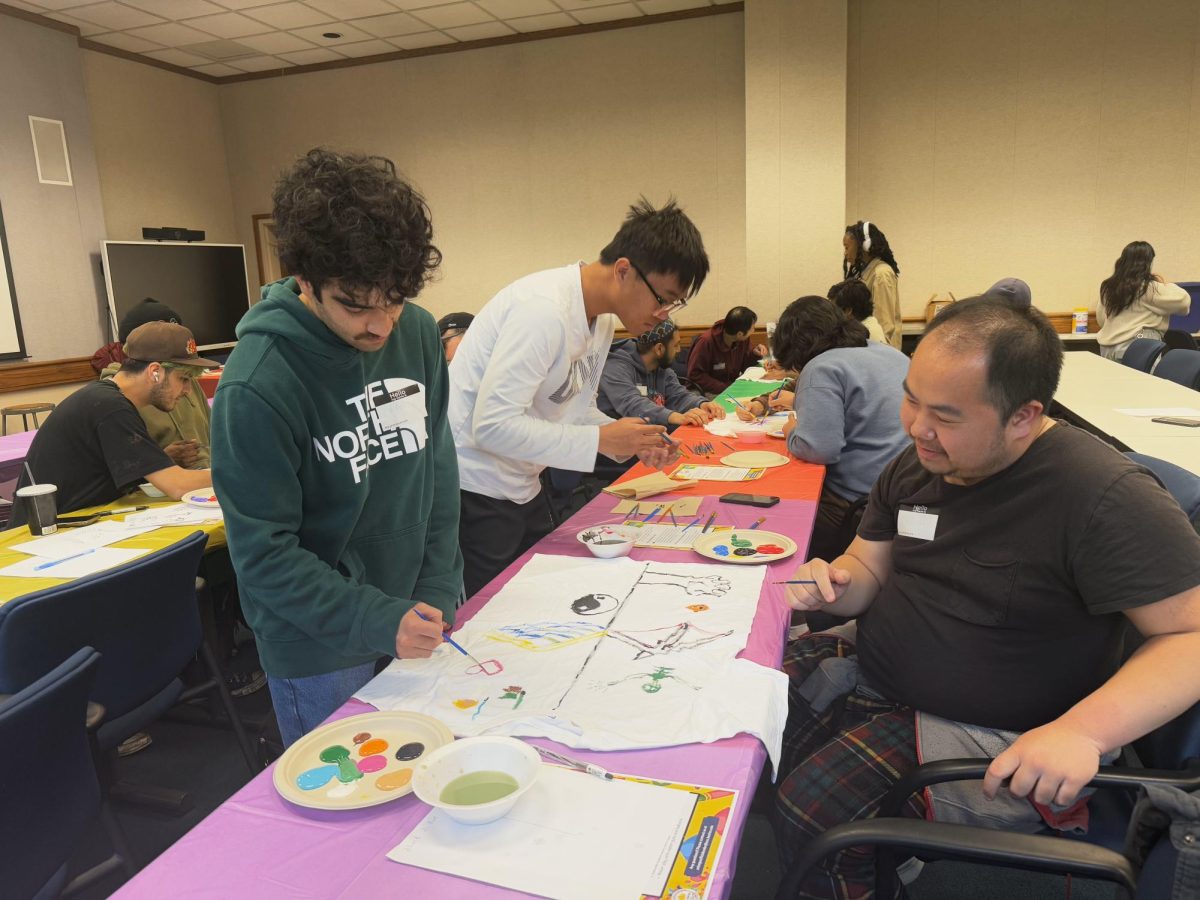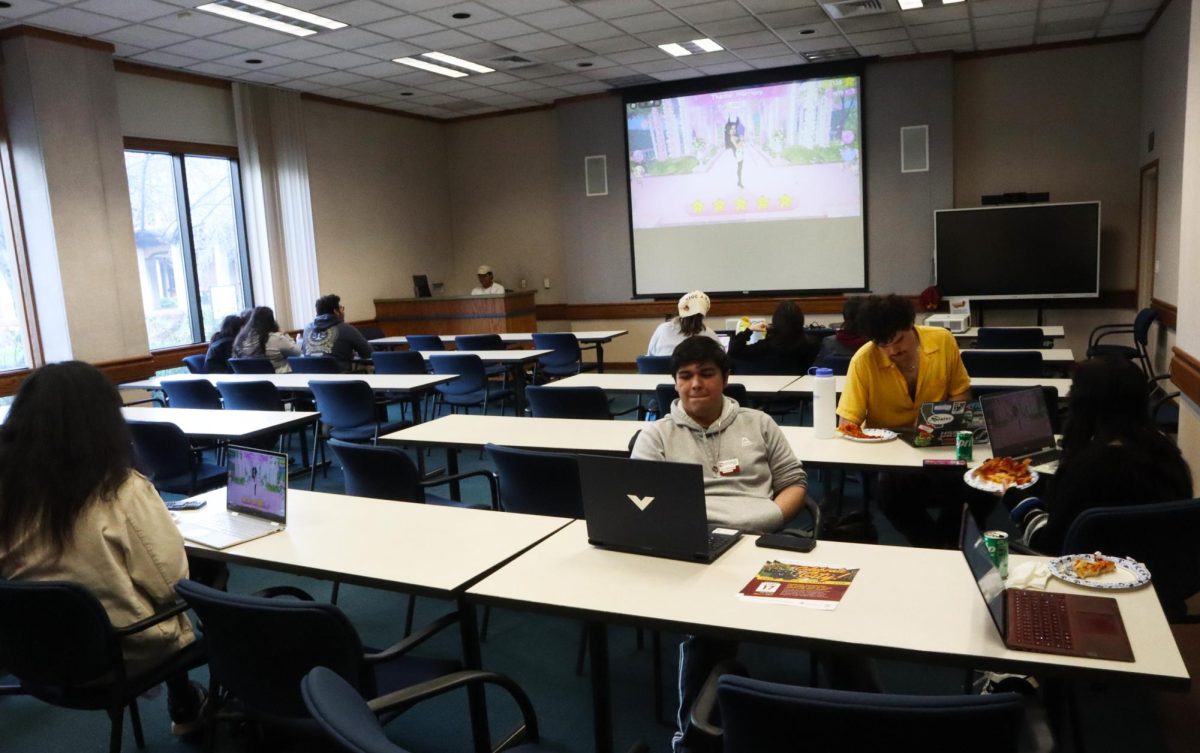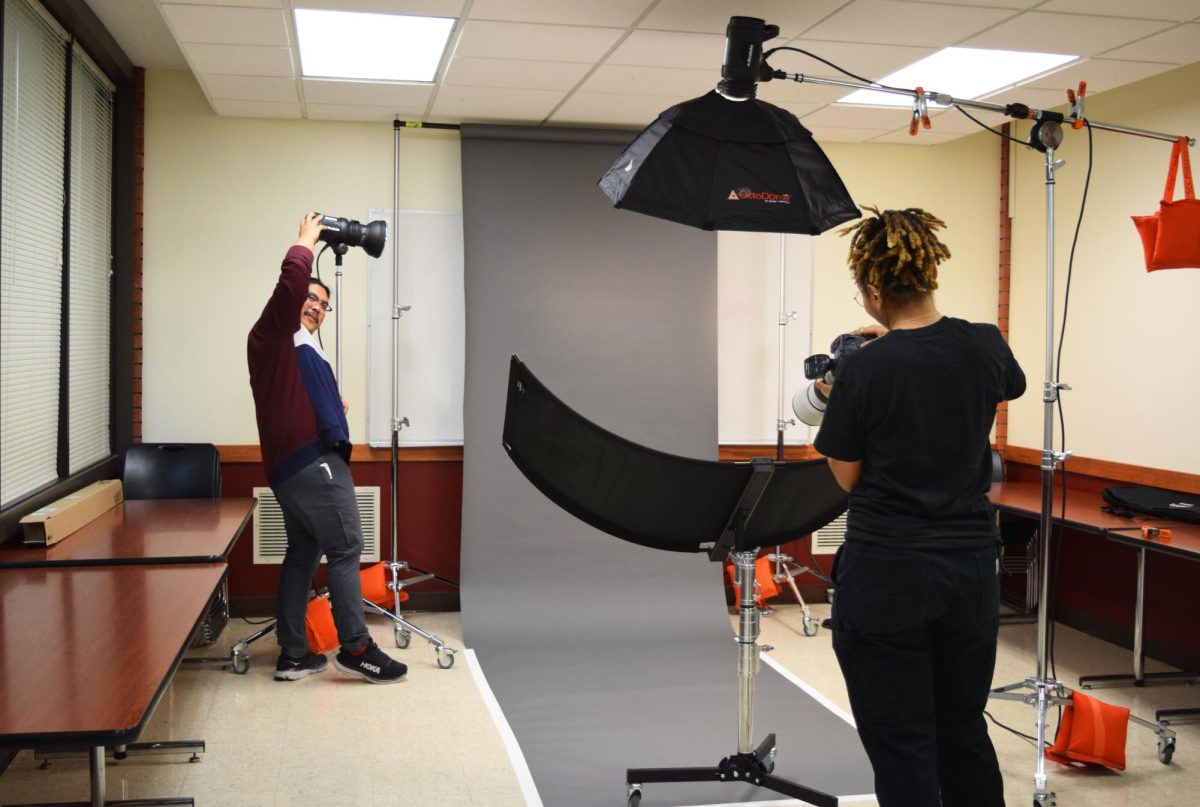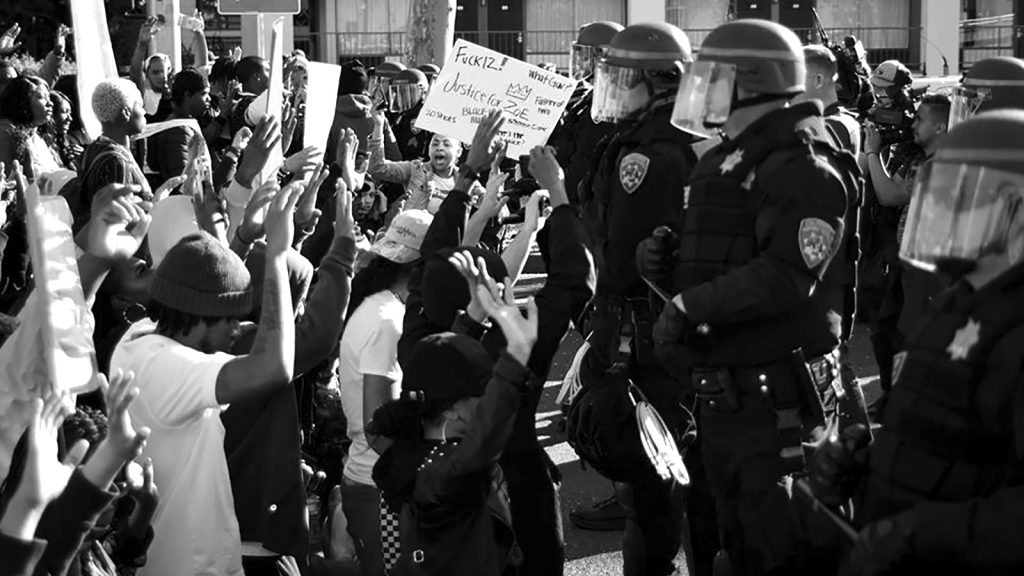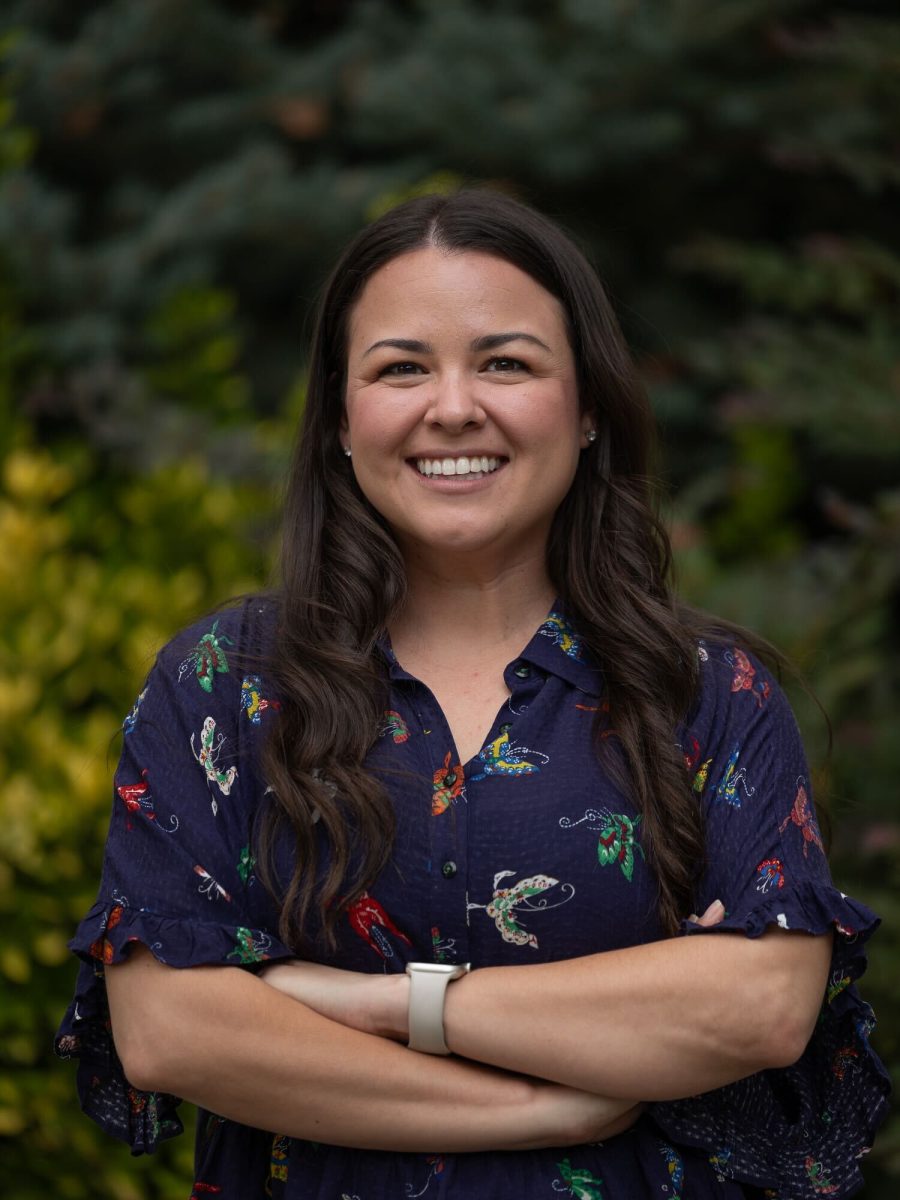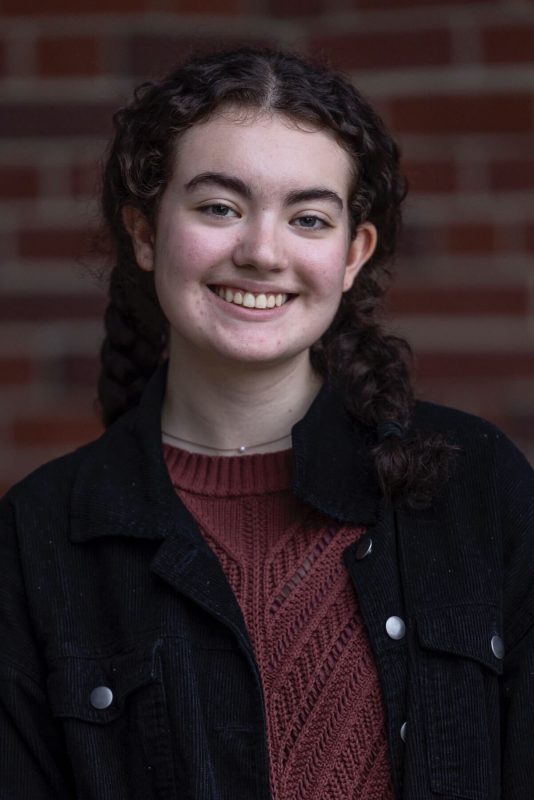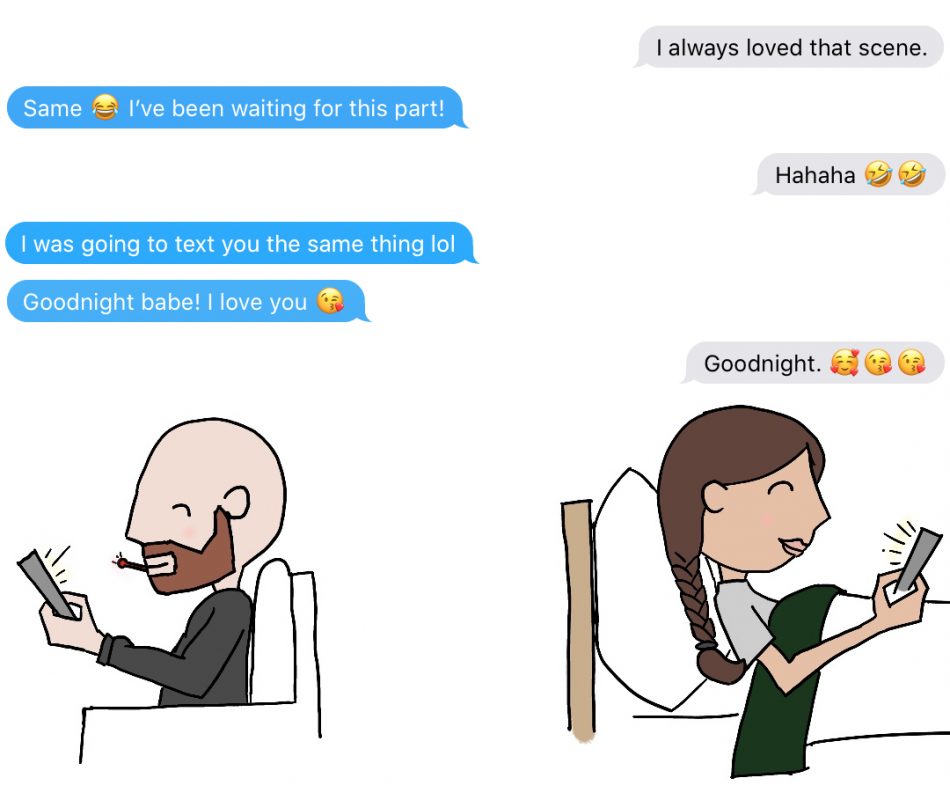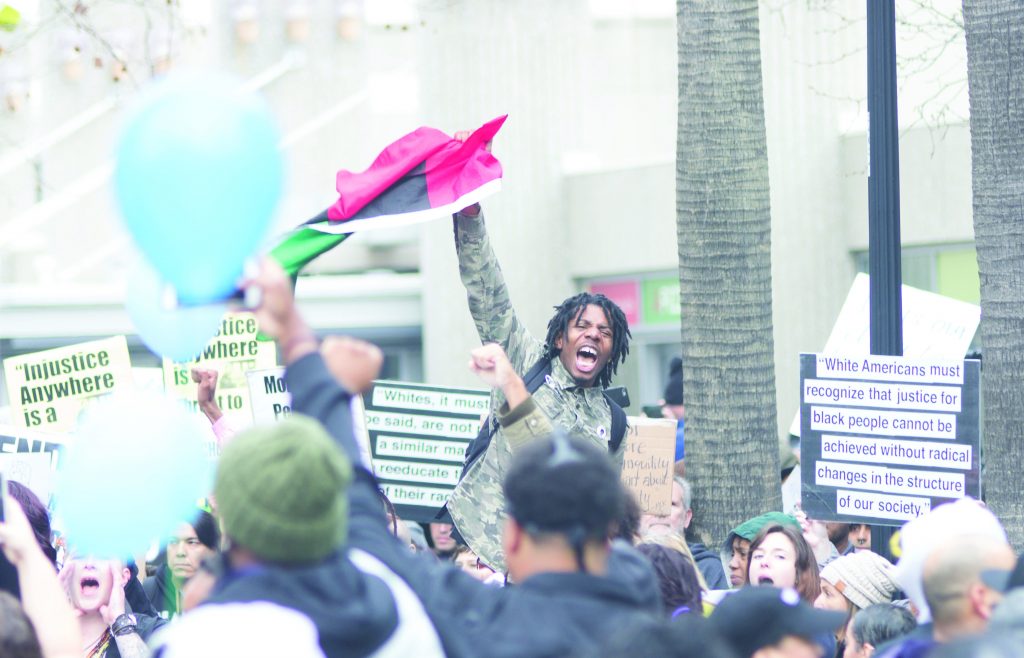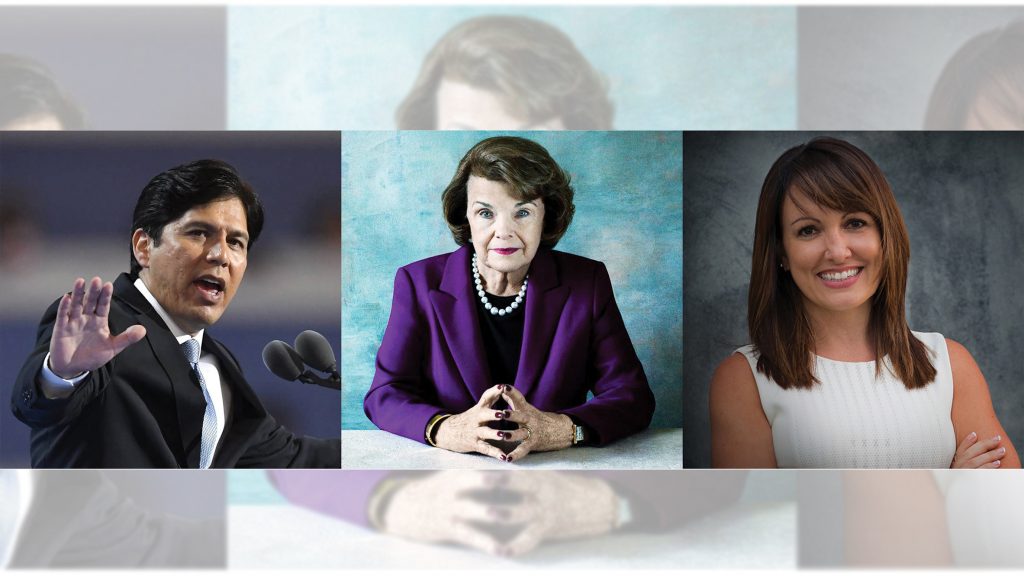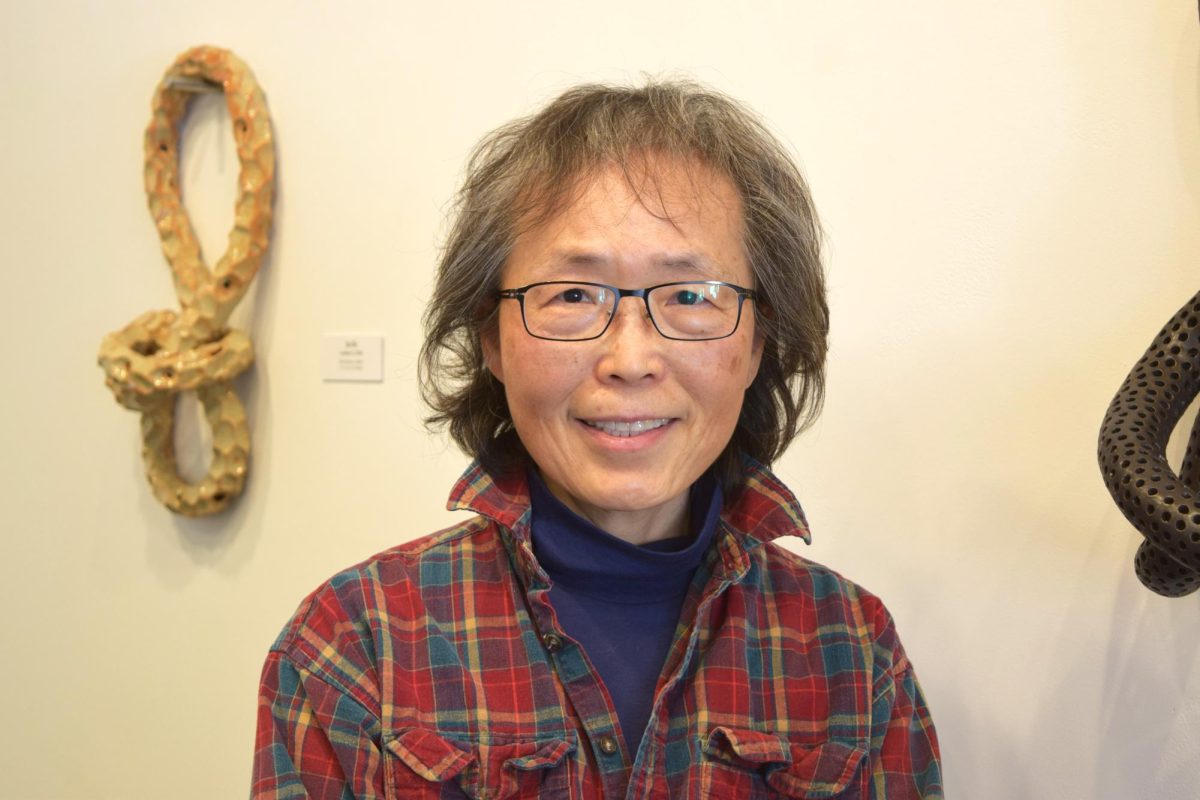Heather Roegiers
Editor-in-Chief
kroegiers.express@gmail.com
“We don’t want you!” demonstrators shouted at the police helicopter overlooking their blockade on Interstate 5 March 22, while demanding justice for Stephon Clark. Once considered absurd, voices calling to abolish the police have grown more prevalent.
Among them is Black Lives Matter Canadian co-founder and activist Janaya Khan. She has pointed out that undocumented immigrant communities can’t call the police in case of an emergency for fear of deportation. Rather than descend into lawlessness, these communities created their own emergency response networks in lieu of help from law enforcement.
Many officials in law enforcement, such as police union leader Tim Davis, have said that police reforms should focus on repairing the image of police and their relationship with the community, but that major reforms were unnecessary. Sacramento Police Chief Daniel Hahn believes policies need to change that allowed officers’ microphones to be muted following Clark’s fatal shooting, saying these policies do not help build trust with the community.
If we really want to prevent more deaths like Stephon Clark’s, we have to realize that law enforcement is currently working exactly as it was designed to. Its poor reputation has been cultivated by centuries-long traditions. While it may seem like ancient history that police were called the slave patrol, the name of the occupation was only changed to navigate post-Civil War politics for the sake of the South’s economy. Their essential role to society never changed. As prison inmates continued to supply a source of forced labor following the abolition of slavery, police continued to supply the inmates. They never stopped being the slave patrol.
Even in the North, the first police were strikebreakers. While the first police departments were founded under the pretense of preventing crime and disorder, no crime wave in history correlates with their emergence, nor did their arrival result in any notable decrease in violent crime. What does correlate with their origin is mounting wealth disparity, labor movements and civil unrest resulting from industrialization. They served the general public no more than the general public could influence the law, which often resulted in the brutal subjugation of workers and the paramilitary occupation of minority communities. They were intended to protect inequality.
If police do any good at all, it is due to the hard-won efforts of reform. The latest shape of these reforms is known as “community policing.” The idea is to decentralize the police and put officers on more permanent beats so they can familiarize themselves with the residents. It sounds like a step in the right direction, but these changes are meaningless unless they reform the officers’ foundational role in society. It’s not enough to increase foot patrols, give more school presentations or partner with more nonprofits. Public security must become community-organized, not just community-oriented.
Our communities do not all have equal voices in our political system. As long as police organizations are shared between both wealthy and disenfranchised communities, they will serve the communities that have a voice at the expense of the ones that don’t. As long as all problems and conflicts within a community are criminalized, officers cannot resolve these conflicts and problems, they can only profit from them. They cannot perform adequate investigations when witnesses are afraid of incriminating themselves and others. They cannot serve their community unless their jobs depend on the approval of that community rather than their chief or union, or suburbanites connected to the inner-city through county lines alone.
I’m not calling for the eradication of all emergency responders, but I am calling for reform so that people of color will feel safe calling emergency responders. The arrival of a police officer to the scene needs to signal that things are about to get better, not worse, and it will take more than fixing their reputation to do that. So long as they hold the power to destroy lives and face no consequence for misusing that power—so long as they don’t answer to the communities they serve—they will continue to be seen as an occupying force rather than peace officers.
Police were not always police. At one time in history, they were the night watch. They didn’t prevent violence then, either, and I’m not suggesting we rewind history, but there are two traditions of law enforcement in this country. It’s time to end the tradition of the slave patrol and improve the tradition of the night watch. These officers have one of the hardest jobs in the world, but it wouldn’t be that way if they could learn tactics to prevent crime rather than profit from it; to protect rather than occupy. We need to allow the profession to become the class genuine public servants that was promised but never delivered.








